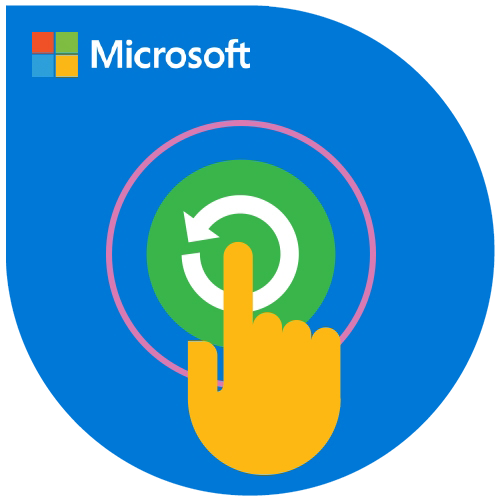Module 1: Implementing a Group Policy Infrastructure
This module covers how to implement a Group Policy infrastructure and then how to configure and manage that infrastructure. It also covers how to scope Group Policy objects (GPOs) using links, security groups, WMI filters, loopback processing, and preference targeting as well as covering troubleshooting policy application.
Lessons:
- Introducing Group Policy
- Implementing and Administering GPOs
- Managing Group Policy Scope
- Group Policy Processing
- Troubleshooting the Application of GPOs
Module 2: Managing User Desktops with Group Policy
This module covers implementing administrative templates, how to configure GPO preferences and folder redirection as well as managing software with Group Policy.
Lessons:
- Implementing Administrative Templates
- Configuring Folder Redirection and Scripts
- Configuring Group Policy Preferences
- Managing Software with Group Policy
Module 3: Managing User and Service Accounts
This module covers how to create and administer user accounts as well as configure user object attributes. It also covers automating user account creation and configuring Managed Service Accounts.
Lessons:
- Automating User Account Creation
- Configuring Password Policy and Account Lockout Settings
- Creating and Administering User Accounts
- Configuring User Object Attributes
- Configuring Managed Service Accounts
Module 4: Maintaining Active Directory Domain Services
This module covers how to implement Virtualized and Read Only Domain Controllers as well as how to perform common AD DS administrative tasks. The module will also cover how to manage the AD DS database.
Lessons:
- Implementing Virtualized Domain Controllers
- Implementing Read Only Domain Controllers
- Administering AD DS
- Managing the AD DS Database
Module 5: Configuring and Troubleshooting DNS
This module covers installing and configuring the DNS server role as well as creating and configuring DNS zones and zone transfers. It will also cover managing and troubleshooting DNS.
Lessons:
- Installing the DNS Server Role
- Configuring the DNS Server Role
- Configuring DNS Zones
- Configuring DNS Zone Transfers
- Managing and Troubleshooting DNS
Module 6: Configuring and Troubleshooting Remote Access
This module covers configuring network access, creating and configuring virtual private networks (VPNs) and Network Policies as well as troubleshooting routing and remote access. It will also cover configuration of DirectAccess.
Lessons:
- Configuring Network Access
- Configuring VPN Access
- Overview of Network Policies
- Troubleshooting Routing and Remote Access
- Configuring DirectAccess
Module 7: Installing, Configuring, and Troubleshooting the Network Policy Server Role
This module covers installing and configuring Network Policy Server (NPS) RADIUS, as well as clients and servers. It will also deal with NPS authentication methods and monitoring and troubleshooting a NPS.
Lessons:
- Installing and Configuring a Network Policy Server
- Configuring RADIUS Clients and Servers
- NPS Authentication Methods
- Monitoring and Troubleshooting a Network Policy Server
Module 8: Implementing Network Access Protection
This module will provide an overview of Network Access Protection (NAP), detailing the functionality and infrastructure requirements. It will also cover configuration, monitoring and troubleshooting NAP.
Lessons:
- Overview of Network Access Protection
- Overview of NAP Enforcement Processes
- Configuring NAP
- Monitoring and Troubleshooting NAP
Module 9: Optimizing File Services
This module covers File Server Resource Manager (FSRM) and how to use it to implement Quotas, file screens and Storage Reports. It will also outline how to implement Classification Management and File Management Tasks as well as covering how to implement DFS, DFS Namespaces and configuring and troubleshooting DFS Replication.
Lessons:
- Overview of FSRM
- Using FSRM to Manage Quotas, File Screens, and Storage Reports
- Implementing Classification Management and File Management Tasks
- DFS Overview
- Configuring DFS Namespaces
- Configuring and Troubleshooting DFS Replication
Module 10: Configuring Encryption and Advanced Auditing
This module covers how to increase file system security by configuring file encryption with Encrypting File System (EFS) as well as how to enable and implement advanced auditing features.
Lessons:
- Encrypting Network Files with EFS
- Configuring Advanced Auditing
Module 11: Deploying and Maintaining Server Images
This module covers the functionality of Windows Deployment Services (WDS), and explains how to use Windows Deployment Services tools to perform lite-touch deployments.
Lessons:
- Overview of Windows Deployment Services
- Implementing Deployment with WDS
- Administering WDS
Module 12: Deploying and Maintaining Server Images
This module covers the features and functionality of Windows Server Update Services (WSUS)as well as detailing how to provision updates with WSUS.
Lessons:
- Overview of WSUS
- Deploying Updates with WSUS
Module 13: Monitoring Windows Server 2012
This module covers monitoring tools available in Windows Server 2012. It will cover the use of Performance Monitor, as well as how to monitor and successfully utilize Event logs.
Lessons:
- Monitoring Tools
- Using Performance Monitor
- Monitoring Event Logs



 Duration
Duration Course Prerequisites
Course Prerequisites Delivery Methods
Delivery Methods



